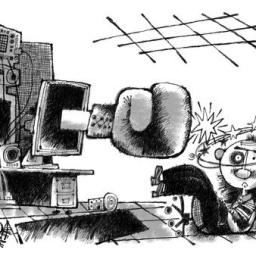Uptake of software-defined networking routing hurting hardware sales
 Typically, September and October are a period that sees an uptick in sales of networking hardware - routers, switches, and the like. Not this year. In fact, industry analysts have noted a drop in sales, and attribute it to increasingly widespread corporate investments in software defined networking (SDN) equipment.
Typically, September and October are a period that sees an uptick in sales of networking hardware - routers, switches, and the like. Not this year. In fact, industry analysts have noted a drop in sales, and attribute it to increasingly widespread corporate investments in software defined networking (SDN) equipment.Industry heavyweights like Google, Amazon, Facebook, and others are already heavily invested in OpenFlow and SDN, but it seems to be taking hold on a much wider scale, and not just in ultra-massive data centers.
"We're at the beginning if the S curve [in SDN] with Google, Facebook, Amazon, and NTT adopting and a few others actively deploying it, but it will be several years before it is mainstream," said Guru Parulkar, the chair of the event and executive director at the Open Networking Research Center that works on SDN.Bad news for Cisco and friends, but they're only suffering what the desktop computer makers suffered a decade ago, and Sun and the rest of the server manufacturers before them.
"We will build network infrastructure with white boxes running merchant silicon, open-source network OSs, and services. This will not happen overnight, but it will come."
In the SDN vision, many tasks will be handled as applications running on Linux servers, said Dan Pitt, executive director of the Open Networking Foundation behind the OpenFlow protocol: "The future of the network is Ethernet, x86, and OpenFlow -- nothing is controlled by a single party, it's all community based."